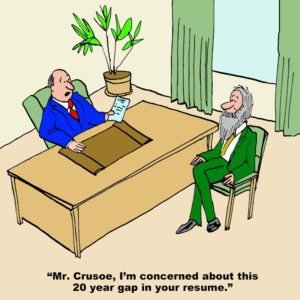
docstockmedia / Shutterstock.com
Note: This post was submitted to Student Caffé by Emmy Defigueiredo. We would like to thank her for her submission and credit her as the author of this blog post.
College-bound students considering a gap year are wise to do so. Prestigious universities across the nation believe that students who take a year off between high school and college (or during their time at school) return to an academic setting more mature, with real world perspective and an increased awareness of themselves and the world around them. The most common gap year is one taken between high school and college, and there are numerous benefits to deferring college entrance. The options for how to spend that year off vary as much as the students who choose to do so.
Long a popular practice for students outside the United States, the gap year phenomenon has taken off domestically in the last decade, with 35% of graduating teens now considering a gap year. President Obama’s daughter, Malia, even took a gap year before starting college at Harvard University this past fall. How to spend a gap year depends heavily on personal preference, goals, and long-term plans, but work and volunteer opportunities are feasible ways to gain valuable life and résumé experience and exercise autonomy. Some universities and colleges will give students credit for their work experience and participation in volunteer programs, but even if they don’t, the experience will open doors for internships and other work opportunities down the road.
Students with wanderlust may long to travel. Going abroad is a terrific way to enjoy a year off while broadening worldviews and developing a taste for and understanding of different cultures and parts of the world. As with any lengthy travel plan, things go most smoothly and enjoyably when thoroughly planned in advance. Youth hostels and exchanges with local host families are just two choices for longer stays, but tourist-rich locations have the benefit of numerous hotels and activities to choose from. Either way, students get to see and explore new places.
Many students who choose to travel for their gap year end up doing so with a gap year program. As travel can be costly, not to mention nerve-wracking for parents, it’s important to research different gap year programs, since they vary in cost and scholarship availability. There are also program options for language immersion and teaching English abroad. Both of these afford many of the benefits of travel while also bolstering résumés by developing skills that will be a boon in any workplace and that promote global competence and citizenry. Taking part in a language immersion experience can even allow students to skip introductory-level language courses at college or test out foreign language requirements entirely.
The benefits of taking a gap year are myriad and colleges are forthright in their belief that this extra year of life experience delivers incoming students who:
- Are well-rounded
- Have a strong sense of self
- Have an increased awareness of micro- and macro-level issues
- Are empathetic
- Take ownership of their educational endeavors and goals

Cartoon Resource / Shutterstock.com
While skeptics have voiced concerns about the potential for loss of educational motivation during a gap year, students overwhelmingly return to school after a year off. Both qualitative and anecdotal data suggest that the opposite of what skeptics argue is actually true. Middlebury College reported that the average GPA of students who took a gap year was consistently higher than that of those who did not. Universities also report that students arrive on campus with a renewed sense of energy, a grander sense of investment in their educational endeavors and more intention with regard to academics than their peers.
Additionally, gap years bring a host of long-term benefits. Delaying college for a year does mean graduating a year later, but the experience gained in that year can give students a leg up in finding work experiences post-graduation as well as exposure to networking opportunities. These intangibles, along with the natural benefit of interesting experiences to talk about after a gap year, can give graduates a marked advantage in competitive fields and tough job markets.
Whether you choose to take a gap year is up to you, but as is the case with any important life decision, planning and foresight are key.

